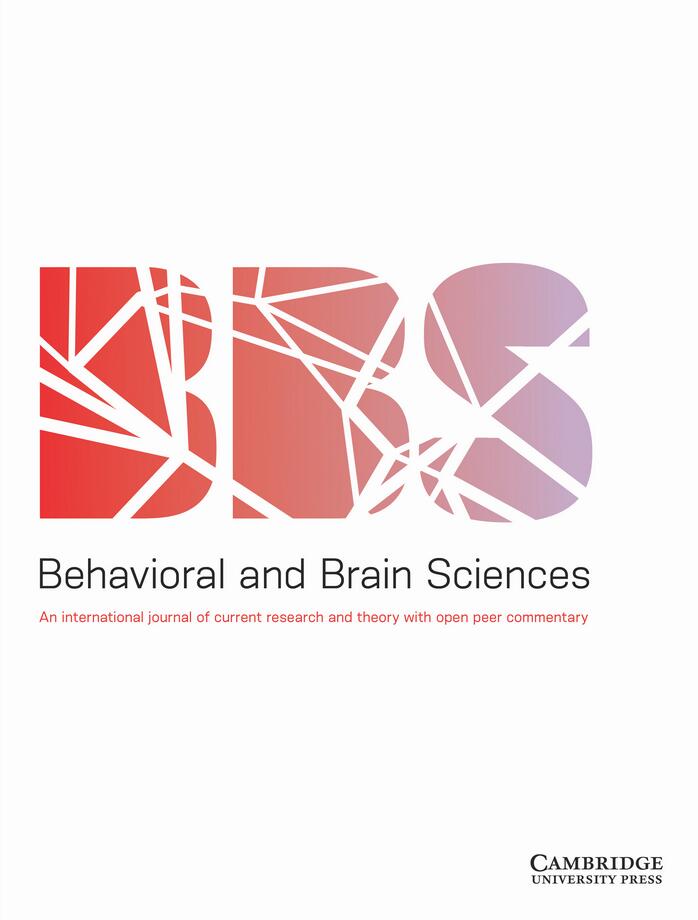发展中的原始占有感。
IF 16.6
1区 心理学
Q1 BEHAVIORAL SCIENCES
引用次数: 0
摘要
博伊尔的人类所有权心理学的极简主义模型忽略了儿童在其发展过程中提供的重要线索,这些线索导致他们从概念前到概念(象征)表达对事物的控制的基本感觉体验,这是最基本的心理意义上的所有权。对先天核心知识和进化逻辑的呼吁打破了这种丰富而独特的个体遗传学进展。本文章由计算机程序翻译,如有差异,请以英文原文为准。
Primordial feeling of possession in development.
Boyer's minimalist model of human ownership psychology overlooks important cues that children provide in their development leading them from pre-conceptual to conceptual (symbolic) expressions of the basic feeling experience of control over things, qua ownership in the most basic psychological sense. Appeal for innate core knowledge and evolutionary logic blows out the light of this rich and unique ontogenetic progression.
求助全文
通过发布文献求助,成功后即可免费获取论文全文。
去求助
来源期刊

Behavioral and Brain Sciences
医学-行为科学
CiteScore
1.40
自引率
1.70%
发文量
353
期刊介绍:
Behavioral and Brain Sciences (BBS) is a highly respected journal that employs an innovative approach called Open Peer Commentary. This format allows for the publication of noteworthy and contentious research from various fields including psychology, neuroscience, behavioral biology, and cognitive science. Each article is accompanied by 20-40 commentaries from experts across these disciplines, as well as a response from the author themselves. This unique setup creates a captivating forum for the exchange of ideas, critical analysis, and the integration of research within the behavioral and brain sciences, spanning topics from molecular neurobiology and artificial intelligence to the philosophy of the mind.
 求助内容:
求助内容: 应助结果提醒方式:
应助结果提醒方式:


